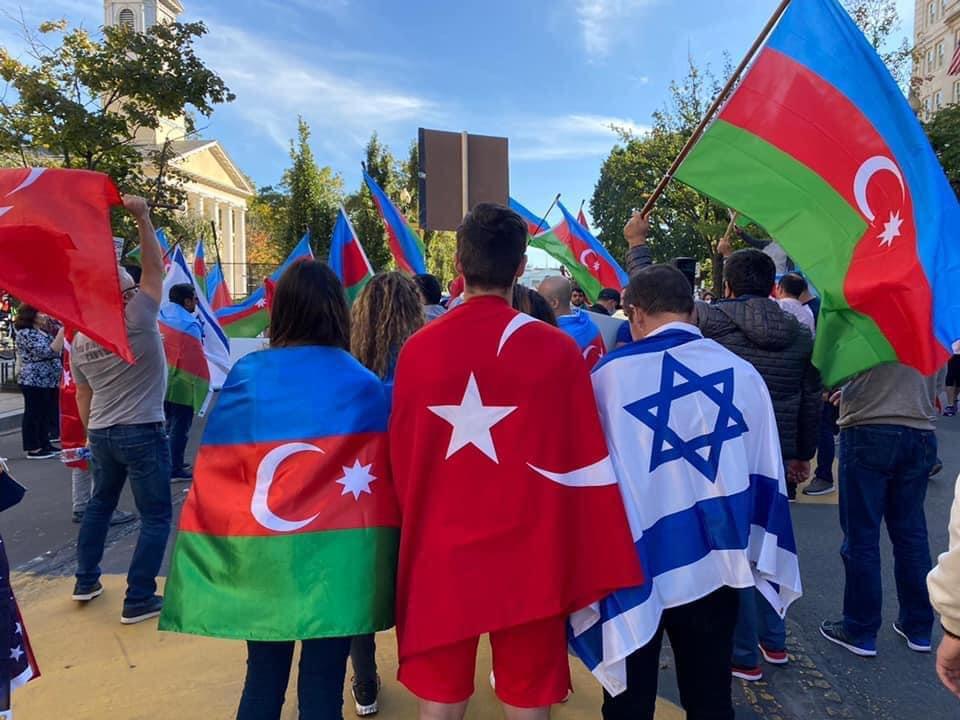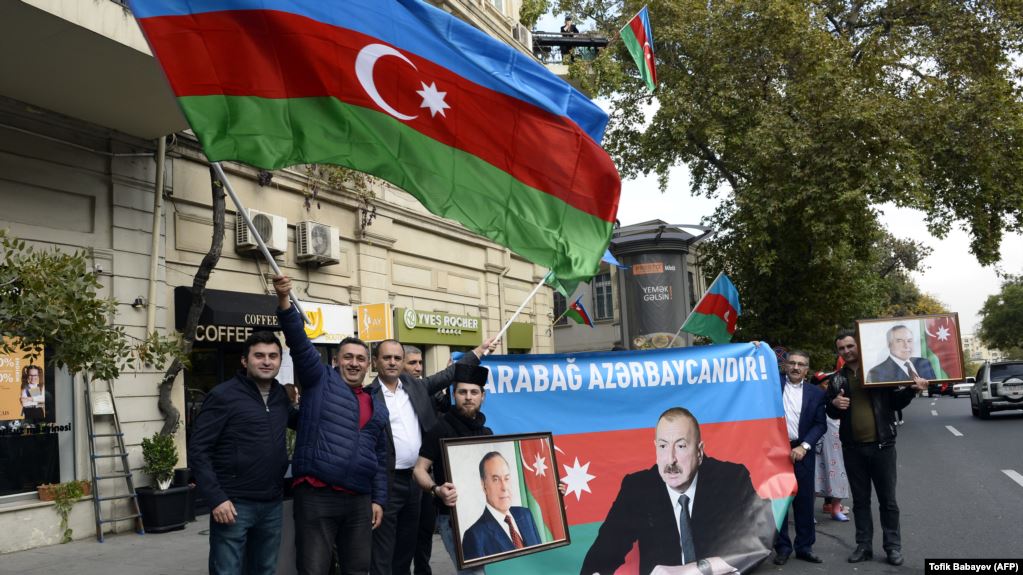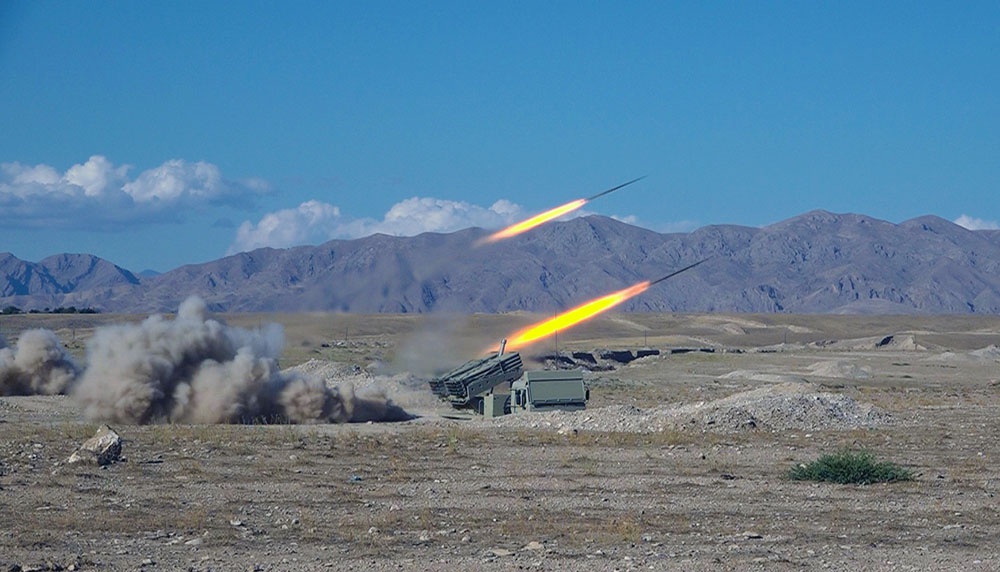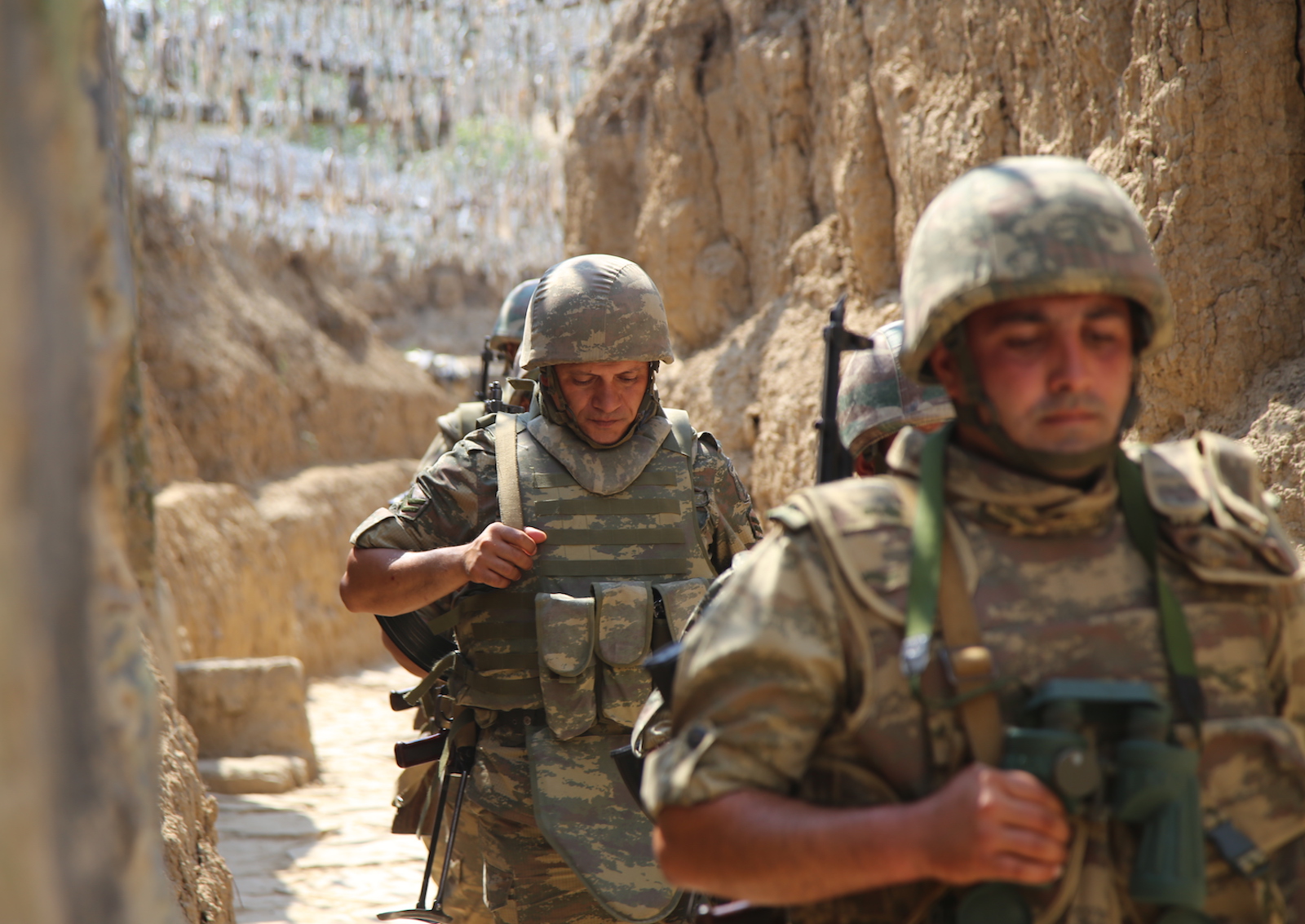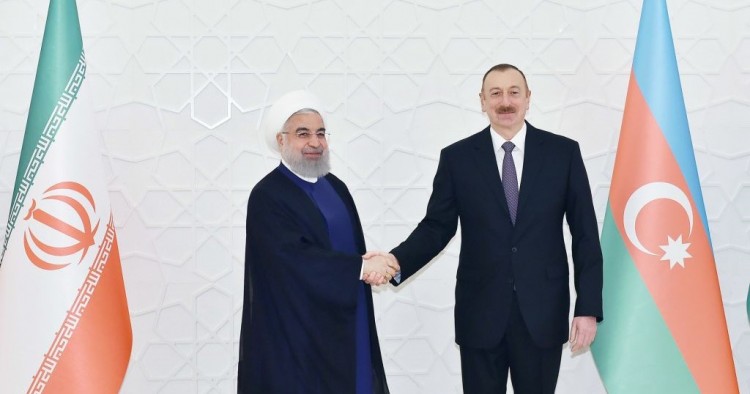
Armenia’s Prime Minister Nikol Pashinyan and Azerbaijan’s President Ilham Aliyev attend a meeting of heads of the Commonwealth of Independent States (CIS) in Ashgabat, Turkmenistan October 11, 2019. Sputnik/Alexei Druzhinin)
One week from the start of the dispute on the Armenia-Azerbaijan border, the situation remains without a resolution. In this opinion piece for KarabakhSpace.eu, Fuad Shahbazov looks at what is driving Azerbaijani actions on the ground and in the diplomatic arena, and the possibility of escalation.
Half a year after the Russian-brokered ceasefire agreement was signed between Azerbaijan and Armenia ending the 44-day war in Karabakh, peace in the complex region is not on the horizon. A new stage of discontent and harsh statements came last week after Azerbaijani Armed Forces reportedly crossed the border with Armenia in the Syunik province and advanced around 3 kilometres by Sev Lake. Yerevan dubbed this action as an explicit provocation and an attempt to occupy Armenian territory, whereas Baku denied the accusations, stating that Azerbaijani border guards established a military control point at the heights around the lake without advancing into Armenian territories. A day later, another official statement issued by the Ministry of Foreign Affairs of Azerbaijan said that there is no reason for panic as border demarcation/delimitation process is a complicated process. Continue reading





